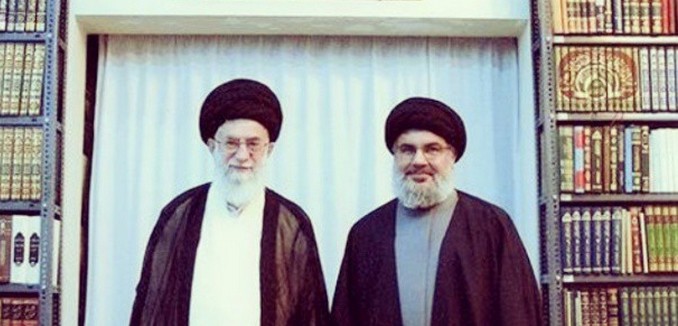The billions of dollars in sanctions relief that will flow to Iran in the wake of the nuclear agreement “will fund Iranian imperialism,” Michael Gerson wrote in a column for The Washington Post.
Gerson explained Iran’s long-running strategy of deploying “several thousand well-trained, well-led militia members” against the country’s regional rivals, having them “exploit local grievances, encourage sectarian solidarity and export their version of anti-American, anti-Semitic, revolutionary Islamism.”
Iran’s first and best success was the organization of Lebanese Hezbollah into an effective instrument. Through it, Iran changed the regional balance of power by positioning perhaps 100,000 rockets and missiles in southern Lebanon aimed at Israel. Tehran is responsible for the survival of Bashar al-Assad’s murderous regime, propped up at key moments by Iranian money and Hezbollah ground forces. Iran has gained effective control of Iraq’s public institutions, since Shiite militias (many allied with Iran) seem to be the only effective fighting forces in the country other than the Islamic State and the Kurds.
More money from sanctions relief will allow Iran to augment these efforts.
How would the nuclear deal affect this? The agreement legitimizes Iran’s nuclear program, pretty much guarantees its ability to produce nuclear weapons in 15 years, and will make it a far wealthier country than it has been in three decades. The regime will have more money to demonstrate immediate economic gains, and access to international markets to make those gains permanent. It will have more money — coupled with the lifting of the arms embargo — to purchase weapons from Russia to challenge U.S. military access to the Persian Gulf. And it will have a lot more money to augment its asymmetrical capabilities.
Iran’s support for Hezbollah and the Assad regime, by some estimates, cost less than $10 billion last year. A $60 billion windfall — even after funding for bread and circuses (assuming the regime allows circuses) — would purchase a great deal of regional chaos.
Gerson quoted former White House official Michael Doran, now a scholar at the Hudson Institute, who pointed out that when the Obama administration talks about pushing back against Iran’s aggression, it means that it will support the militaries of Israel and America’s Arab allies, but will take no action itself. “They have no answer to the subversive activities of Iran in Iraq, Syria, Lebanon and Yemen,” Doran said. “The terms of the nuclear agreement itself make ‘push back’ very difficult, because the agreement says that any further sanctioning of Iran will blow up the agreement. So we have given Iran an instrument to blackmail us into not containing them.”
Iranian Foreign Minister Mohammad Javad Zarif told Hezbollah leader Hassan Nasrallah Tuesday that the nuclear deal will give Iran and its allies a “historic opportunity” to fight Israel.
[Photo: Iftikh / Flickr ]




